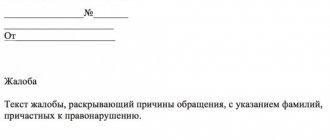Rules and responsibilities for student dormitory residents
Each student who receives a place in a student dormitory is given an obligation to sign an agreement that stipulates his rights and obligations.
Although the rights of residents include the right to live until graduation and use common resources in the hostel, their responsibilities are much more detailed.
- It is necessary to strictly observe the established rules of residence and internal regulations. This includes arriving and leaving the residence hall at designated times and limiting the number of guests except on parent's days.
- It is necessary to take good care of property and equipment in the dormitory, as well as wisely use resources such as electricity, gas and water.
- Maintain cleanliness of own room, neatly clean common areas, and adhere to floor cleaning schedule.
- Pay rent and utilities on time, avoiding debt.
- In the event of material damage, be responsible for compensation for damage, for example in case of damage to furniture.
- Obey the instructions of the dormitory supervisor (commandant and watchman) and fulfill the terms of the agreement concluded with the university administration.
All of these responsibilities can be burdensome for a student, and failure to comply with any one of them may result in negative consequences, including eviction from the residence hall.
Exceptions to the rule
With the new Housing Code of the Russian Federation, the list of categories of persons who are guaranteed increased housing provision compared to the previous law has been reduced. This includes:
- Family members of military personnel and employees of the Ministry of Foreign Affairs, Ministry of Emergency Situations, customs and penal system authorities who died or disappeared in the course of their official duties or military service.
- Recipients of old-age pensions.
- Disabled people of group I or II who acquired their status as a result of injuries or occupational diseases associated with work.
- Disabled people of group I or II who received the status due to injury, contusion or damage received during military service.
All of the listed categories of tenants cannot be evicted according to a court decision. However, student accommodation is not always the best place to live and the prospect of eviction remains unclear.
It is important to note that although the law does not include age under 18 in the list of exceptions, the courts usually react negatively to the eviction of this category of citizens. If the student does not have an alternative place of residence and a relative willing to provide registration at the place of residence or stay, the eviction will be denied. Even if the decision turns out to be negative, its implementation may be delayed for several months.
Reasons for leaving the hostel
There are many reasons why a student may be evicted from a residence hall. Let's look at the most common ones:
- Uncleanliness: If a student does not maintain cleanliness prior to inspection by the administration, he may be placed on the list of persons who fail to maintain cleanliness. For the first time, a student may be forgiven and receive a warning. However, if a complaint is made by the superintendent or roommates, punishment may be imposed, ranging from a fine to eviction. In case of repeated violations, the student is evicted.
- Causing damage in the residence hall: If a student accidentally damages property and admits guilt, he may be fined and required to pay compensation for the damage. However, if a student causes serious damage to furniture in their room or common areas, they will be fined and evicted.
- Failure to Comply with Mandatory Temporary Registration: If a student fails to complete mandatory registration on time, they may be evicted without alternative housing provided.
- Non-Payment of Rent: A student may be expelled at any time if the student fails to pay rent.
- Living in a hostel without actually staying: Even if a student regularly pays for a place, he may be evicted because he violates the rules of accommodation and takes a place without providing it to someone in need.
- Violation of community order and disturbance to residents: for example, if a student talks loudly on the phone, listens to loud music and disturbs neighbors, he can either be evicted or moved to another room.
- Alcohol or drug intoxication and holding parties in the room put the student at risk of expulsion from the university and eviction from the dormitory. The same applies to being under the influence of drugs.
- Possession of alcohol, drugs or weapons in your room will result in immediate expulsion from the residence hall.
- If charged under an article of the Criminal Code of the Russian Federation, the student is immediately evicted from the dormitory and expelled from the university.
There are many reasons that can lead to eviction. Some of them are objective and statutory, as described above. Other decisions may depend on the commandant's personal preferences and decisions.
Let's discuss whether an administrator can influence the process of evicting a student from a dormitory.
Dormitory: Eviction procedure and other important issues
Situations related to eviction from a hostel always raise many questions. Organizations running hostels face this problem. How can tenants and their family members be evicted if they do not pay rent or have already left the hostel? How are the transitional provisions of the Housing Code applied in this situation? These and many other questions are discussed in the article prepared by Natalya Anatolyevna Kuharchik.
What changes have occurred in housing legislation in 2021 in connection with the introduction of a new edition of the Housing Code and Decree No. 121?
On January 1, 2020, a new edition of the Housing Code came into force, which provides for a number of changes in the procedure for the provision and use of dormitories, including the following aspects:
1. Changing the definition of “dormitory” <*>: now a dormitory is considered to be a residential building (or part of it) specially designed or converted for the residence of citizens during the period of their work, study, internship, sports training, as well as in other cases established by law . This means that the list of situations when it is possible to provide housing in a hostel has become wider (for example, for the temporary residence of orphans and children who have lost parental care, with a decision on emancipation or marriage, as well as for citizens who retain the right to accommodation in a dormitory).
2. The right to priority housing in dormitories extends to adult children of citizens living in specialized homes for veterans, the elderly and disabled <*> and to students studying in secondary specialized education programs and the first level of higher education who have recommendations from military units for studying in educational institutions of secondary specialized education and higher education and having served in conscription or in the reserve.
3. The possibility of converting residential premises in a dormitory into non-residential ones and vice versa <*> has been determined, and the procedure for technical inspections and assessment of the condition of dormitories <*> has been established, as well as the criteria under which dormitories are recognized as non-compliant with established sanitary and technical standards <*>. Previously, these rules only applied to multi-family residential buildings.
4. A ban on smoking and the use of electronic smoking systems and smoking devices in elevators and common areas of dormitories <*> has been introduced.
5. Changes have been made regarding eviction from residential premises in dormitories:
- the rules for calculating debt for utilities, rent and electricity payments have been changed, in which tenants are required to leave public housing in a dormitory <*> - now the debt must accumulate for 6 months in a row. Previously, the size of the six-month debt was taken into account without the requirement of permanent non-payment;
- an additional basis has been introduced for the eviction of tenants and their families from residential premises in dormitories without the provision of alternative housing <*> - in the event of systematic (3 or more times per calendar year) damage or destruction of residential premises and public places in the dormitory, or improper use of their intended purpose , as well as systematic violation of house rules and fire safety regulations, which prevents other tenants from using the hostel, provided that they were warned about the possibility of eviction without alternative accommodation provided and continued to commit similar violations throughout the year.
Resolution No. 121 came into force on April 11, 2020. The procedure for using funds received in return for payment for living in residential premises of the state housing stock in dormitories <*> is established.
People living in residential premises of the state housing stock in dormitories are required to pay fees for <*>. Instructions on the procedure for calculating this fee for residential premises of the state housing stock in dormitories (with the exception of dormitories of state educational institutions) were approved by the Regional Executive Committees and the Minsk City Executive Committee. At the same time, the procedure for using funds received for living in residential premises of the state housing stock in dormitories has not previously been established.
Money received as payment for living in residential premises of the state housing stock in dormitories (excluding residential premises in dormitories of state educational institutions and budgetary organizations financed from the republican budget) can be used <*>:
— to finance maintenance work, technical modernization and reconstruction of dormitories, as well as administrative expenses;
- for other purposes related to the maintenance of dormitories, maintaining and restoring the sanitary and technical condition of the land plots on which they are located.
Additionally, the procedure for accumulating and using these funds will be determined by the Regional Executive Committees and the Minsk City Executive Committee.
What documents are required to provide hostels to citizens if they are: 1) employees of the organization that owns the hostel (hereinafter referred to as employees of the organization); 2) employees of another organization at whose request the hostel is provided?
Dormitories are intended for residence of citizens <*> in the following cases:
— during the period of their work (service) in government bodies and other organizations ;
- during the training period;
— when undergoing clinical residency in organizations involved in the training of clinical residents in accordance with the law;
- for sports training.
If there are free places in the hostel and there are no citizens in the state organization that includes the hostel who need housing in the hostel , housing in the hostel can be provided to employees (employees) of another organization at their request on the basis of a lease agreement for residential premises of the state housing stock in the hostel .
The procedure for providing residential premises in a dormitory to employees of the organization that owns the dormitory and employees of another organization at their request differs:
1. Employees of the organization must be registered as wishing to receive housing in a dormitory at their place of work in a given government organization or other organization . The registration procedure is defined in Chapter 2 of the Regulations on Dormitories.
To register, the employee must provide the documents listed in paragraph 1.1.8 of paragraph 1.1 of the list of administrative procedures performed by government bodies and other organizations at the request of citizens, approved by Decree No. 200 of April 26, 2010.
Additional documents confirming the need are requested from the organization registering applicants in accordance with Article 22 of the Law on Administrative Procedures from relevant government agencies and other organizations. Such documents include <*>:
— certificates about the availability of living quarters and family composition in a given locality;
- certificates of ownership of housing in the applicant and his family members in the locality, where they submit an application for registration of those wishing to receive housing in a hostel (if the application is submitted in Minsk, then of the availability of housing for the citizen and his family members living together in Minsk and Minsk region);
— other documents (information) required for registration <*>.
The organization's employees themselves can provide these documents.
2. Employees of a third-party organization who are provided with residential premises in a dormitory upon application must submit an application . At the same time, they are not accepted for registration of those wishing to receive residential premises in a dormitory in the organization that manages the residential premises, since such organizations have the right to keep this registration only in relation to their employees. The organization that issued the application also does not keep records of those wishing to receive housing in the dormitory, because There are no dormitories run by this organization.
In this case, the question of whether the application is to be granted or not depends on the decision of the organization in charge of the hostel. Based on the content of Part 2, Clause 2 of the Regulations on Dormitories, the main conditions when considering such applications:
— availability of free places in the hostel;
- absence in the organization that manages the dormitory of employees of this organization who need living quarters in the dormitory.
At the same time, the procedure for an employee of a third-party organization to submit a petition to the organization is not in the nature of an administrative procedure. Consequently, when considering an application, an organization has the right to request (both from the organization that issued the application and directly from the citizen) any documents it needs to make a decision in accordance with the law.
It should be noted that the purpose of providing housing in a dormitory is a temporary solution to the housing problem. In relation to tenants (regardless of whether they are employees of the organization that manages the hostel or not), the grounds for eviction without the provision of other living quarters, provided for in paragraph 2 of Art. 87 of the Housing Code, including if the tenant and family members living together in a given locality own (or) possess and use, under a lease agreement, residential premises of the state housing fund of residential premises with a total area of 15 square meters. m or more (in Minsk - 10 sq. m or more) per person, meeting the sanitary and technical requirements established for living. A similar basis for vacating residential premises in a dormitory is provided for in subparagraph. 10.3 clause 10 of the Standard Agreement for the rental of residential premises of the state housing fund in a dormitory, approved. Resolution of the Council of Ministers dated 04/05/2013 N 269 (hereinafter referred to as the Model Agreement).
Therefore, when satisfying a request for housing in a dormitory, the organization must at least establish whether an employee of a third-party organization is provided with housing in a given locality. It is advisable to regulate this issue by the LPA, for example, by the regulations on the organization’s dormitory, stipulating, for example, that the documents provided for in part 3, paragraph 8 of the Regulations on dormitories must be attached to the application.
What is the procedure for deregistration of an employee of an organization or an employee of a third-party organization (hereinafter referred to as the employer) who left the residential premises in the dormitory, handed it over according to the act, but did not take measures to deregister from the dormitory? What legal provisions will be the basis for filing a lawsuit?
When leaving the hostel for a place of residence in another locality or other residential premises in this locality, the tenant is obliged <*>:
- vacate and hand over to the landlord the residential premises in the hostel, as well as all the property registered with it according to the act of renting out the residential premises;
- to compensate for the damage caused in the event of failure to hand over the property assigned to him or its damage or destruction.
At the same time, an exhaustive list of grounds for deregistration is defined in clause 37 of the Regulations on the registration of citizens at the place of residence and place of stay, approved. Decree No. 413 dated 09/07/2007 (hereinafter referred to as the Registration Regulations).
This list does not provide for voluntary deregistration at the request of a citizen. In this regard, as a rule, in the described case the basis provided for in paragraph. 6 clause 37 of the Registration Regulations: in case of eviction from an occupied residential premises or recognition as having lost or not acquired the right to use residential premises - on the basis of a copy (extract from) a court decision that has entered into legal force on eviction from an occupied residential premises, or termination, recognition invalidity of the civil contract on the basis of which registration was made, or recognition of the citizen as having lost or not acquired the right to use residential premises.
In this situation, the circumstances of departure are of primary importance.
For example, if a citizen has vacated his residential premises in the event of termination of his employment relationship, the basis for filing demands for eviction in court will be para. 7 clause 1 art. 79 LC and clause 1 art. 87 LCD.
In addition, in judicial practice there are also demands for the elimination of obstacles in the exercise of property rights and possession with reference to Art. 285, 286 Civil Code. However, in this case, it is also necessary to simultaneously present demands for eviction without providing another living space.
The courts also resolved claims by owners of residential premises to remove obstacles in the exercise of property rights <*> and to evict former owners from residential premises without providing another residential premises. Such disputes arose if, after the transfer of ownership, in particular under contracts of sale and donation, the former owners refused to vacate the residential premises. Courts, as a rule, take into account that termination of ownership entails the termination of all powers of the owner, including the right to use residential premises. Therefore, claims for eviction of former owners are satisfied if the right to use the residential premises is not retained by them on the basis of law or agreement.
If the tenant terminated the contract unilaterally, then the retired tenant, member (former member) of the tenant’s family may be recognized in court as having lost the right to own and use residential premises in accordance with clause 2 of Art. 62 LCD <*>.
However, it should be borne in mind that when resolving a dispute about the defendant’s loss of the right to own and use residential premises of the state housing fund, the court must take into account that not only the fact of the defendant’s departure from the residential premises about which the dispute arose is subject to proof and investigation, but also the date at which the defendant moved out of the residential premises and whether it is his permanent or temporary place of residence <*>.
On what other grounds can an employee and (or) his family members be evicted from a dormitory, taking into account the transitional provisions of the Housing Code? What are the features of compensation for losses of a hostel? Read the answers to these and other questions in ilex
Can the commandant evict from the hostel?
If a student is evicted from a dormitory, it is not always the commandant’s fault. Most often, the commandant warns the student that he may soon be evicted for offenses. And the keeper of order in the dormitory can influence this by telling the administration about the student’s misconduct.
But is an employee who fulfills his duties and reports a violator to blame? Or is it the one who breaks the rules and fails to fulfill his duties that is to blame?
Only if the commandant really has hostility towards the student can we talk about injustice. Or, for example, if the commandant wants to place another person in the student’s place. However, it is worth resolving the issue verbally, without getting personal. Or report it to the authorities. This is the only way to resolve the issue in an honorable way, without continuing to develop the conflict.
If you are evicted due to actual non-residence, then most likely the commandant reported this. But this is part of his executive duties. In addition, it will be beneficial and the place will go to a person in need.
Purpose of dormitories
Dormitories are provided for temporary residence of working citizens, students, and students of other educational systems. It is impossible to live in special types of premises without working or studying; in fact, these buildings are built for one purpose - to solve people’s temporary difficulties with housing.
Dormitories belong to individual institutions, enterprises or organizations. These buildings are equipped with everything necessary for life: furniture, cultural and household items that allow residents to relax, study, prepare food, and carry out hygiene procedures.
The main purpose of such premises is to provide shelter to individual citizens or families until they resolve their housing issue. Often, nonresident citizens who do not have real estate in a given area, and often have relatives in this city, apply to move in.
Eviction from a hostel under the Housing Code
Accommodation and eviction from the hostel is regulated by many regulatory documents. However, the most important thing is the Housing Code. It tends to change, so you need to know the new rules for living in a hostel according to the Code.
- The first and legal ground for eviction is completion of studies and graduation from the university. When a student receives a diploma, he cannot renew his employment contract. Only if a student enters a master's program can he apply for a new place in the dormitory. But to do this you will have to find out the admission results.
- Expulsion from the university is also a reason for evicting a student from the dormitory. He ceases to be a university student, and therefore loses the right to live in a student dormitory.
- If the dormitory building is sold, then all students may be moved to another place, or simply evicted.
By law, the provision of hostel accommodation is not the responsibility of the university. Providing a room for students to live is helping the poor and those who find it difficult to rent an apartment in another city. If a student is registered with a residence permit in the same city, but his home is located in another area, then no one will give him a bed.
There are not enough places in the hostel. Therefore, many students who move from other cities are forced to rent apartments and pay 10-15 times more than those who live in dormitories. Therefore, you should protect and appreciate housing that is provided at a minimal cost.
If a student is evicted from the dormitory, it means he has underestimated the help of the university and faculty. Or an injustice has occurred. We will tell you what to do in this case further.
Legal and illegal reasons
First, let's remember how a person becomes a resident of a hostel. A lease agreement is concluded with him, which also stipulates the conditions under which the tenant will have to leave the occupied room. This may be due to changes in his work or studies, or according to general rules that are valid wherever the citizen lives.
So, you will have to vacate the premises in the following cases:
- termination or termination of an employment contract with the organization;
- expulsion from an educational institution;
- systematic creation of conditions that violate the rights of neighbors, threatening their comfort, and even safety;
- non-payment of housing and communal services for at least six months;
- expiration of the lease term (it may not be timed to coincide with any event, it may simply occur over time);
- using the room for other purposes;
- if the owner of the premises has changed;
- own desire.
Important: a change of hostel owner does not always mean that the previous residents will have to pack up their things and clean out. There is no eviction if the new owner also becomes the new employer.
It is also worthy of attention that if a citizen has no more roof over his head than the disputed room, this does not mean that he cannot be evicted. This means that he can declare himself to the state as in need of housing (Article 51; 52 of the Housing Code of the Russian Federation) and register as a low-income person (for this he must meet certain criteria). But the fact that the occupied room is his only refuge does not make the lease permanent, and expulsion illegal. Read more about the grounds for eviction here.









